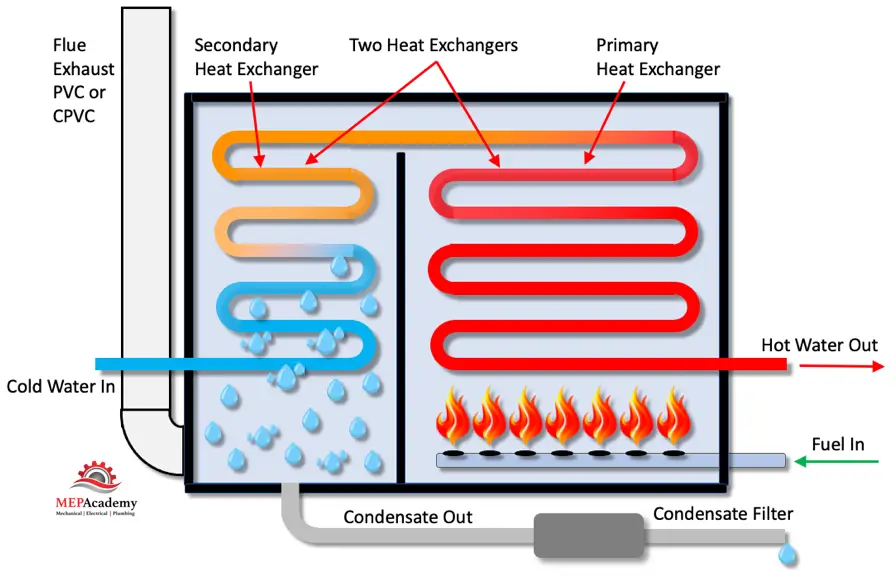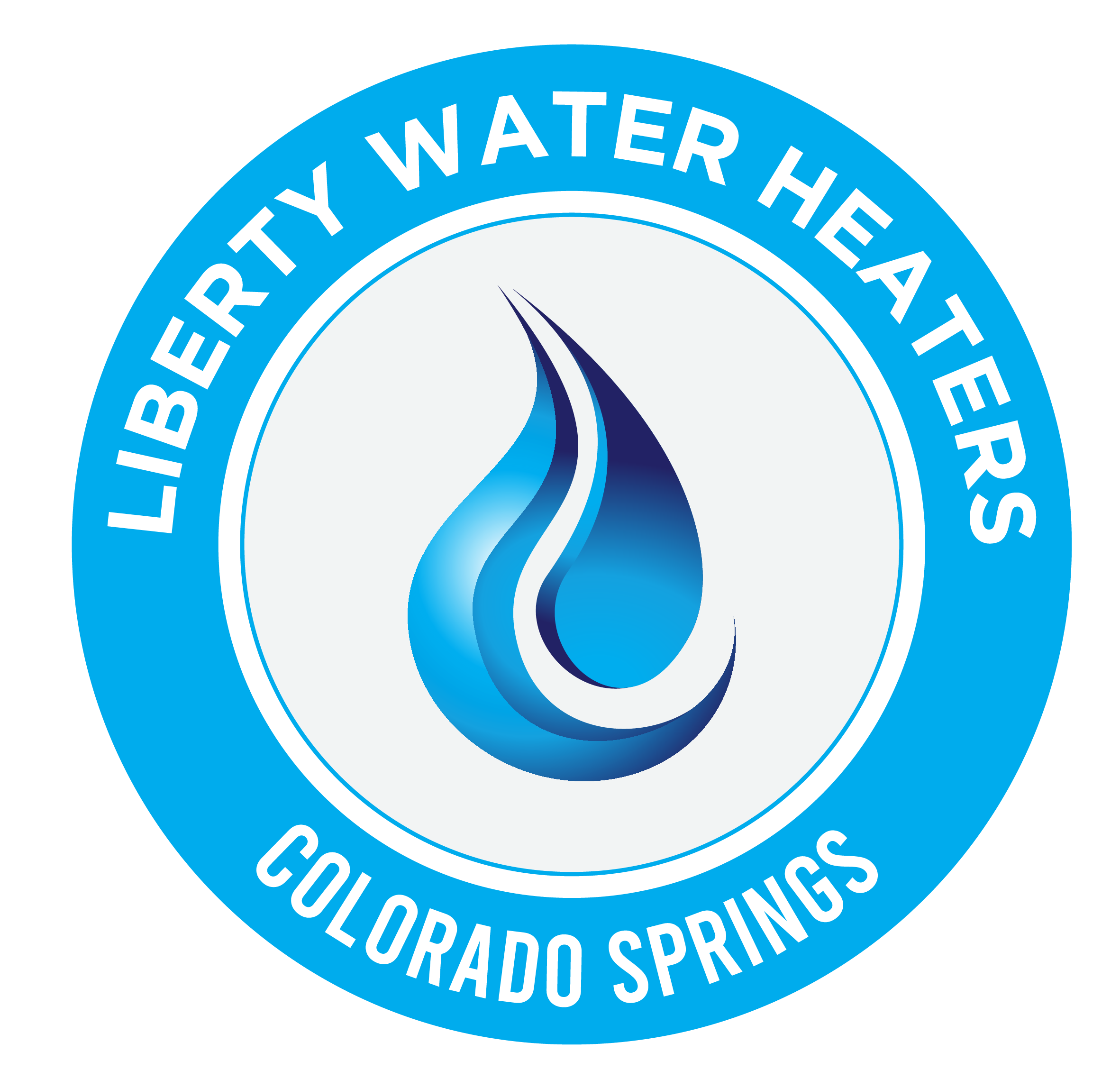Condensing Water Heaters
Colorado Springs, CO
Condensing Water Heaters Colorado Springs, CO
Condensing Water Heater Repair & Installation Colorado Springs


Request Your Estimate
Condensing water heaters, also known as condensing tankless or condensing tanked water heaters. They are a type of water heating system that is highly efficient and can save energy and money compared to traditional water heaters. They work by taking advantage of a process called condensation to extract more heat from the combustion process.

Request Your Estimate

Condensing water heaters, also known as condensing tankless or condensing tank-type water heaters, are a type of water heating system that is highly efficient and can save energy and money compared to traditional water heaters. They work by taking advantage of a process called condensation to extract more heat from the combustion process.
How Condensing Water Heaters Work

Condensing water heaters use natural gas or propane as a fuel source to heat water. When you turn on the hot water tap or the thermostat detects a need for hot water, a gas burner is ignited in a sealed combustion chamber.
In the combustion chamber, the fuel is burned to produce hot exhaust gases. These gases contain a significant amount of heat energy. Instead of letting these hot gases escape into the atmosphere as in non-condensing heaters, condensing water heaters have a secondary heat exchanger that captures and utilizes this heat.
The secondary heat exchanger is designed to cool the exhaust gases rapidly. As the gases cool down, water vapor in the exhaust begins to condense into liquid form. This process releases additional heat energy, known as latent heat, which is also transferred to the incoming cold water.
Before the condensed water and exhaust gases leave the heat exchanger, the heat extracted during condensation is used to preheat the incoming cold water supply. This preheating significantly reduces the amount of energy needed to raise the water temperature to the desired level.
The preheated water is then further heated to the desired temperature by passing through a coil or heat exchanger that is directly exposed to the hot exhaust gases. This final step ensures that the water reaches the desired temperature before it is delivered to your taps or fixtures.
The remaining exhaust gases, now cooled and condensed, are typically vented through a plastic pipe. Because the exhaust gases are cooler and contain moisture, they can be vented through a sidewall or roof vent, unlike non-condensing heaters that require a traditional chimney or flue.

The key benefits of condensing water heaters are their high energy efficiency and lower operating costs. By capturing and using the latent heat from condensation, these systems can achieve efficiency ratings of up to 98% or more, compared to the 60-70% efficiency of many non-condensing water heaters. Non-condensing water heaters either are constantly using electricity or are venting out the leftover exhaust from the natural gas that is used to initially heat the water. In contrast, a condensing water heater will reuse this exhaust to continue heating the water. This means that less energy is wasted, and more of it is used to heat your water, resulting in lower energy bills and reduced environmental impact.
It’s important to note that condensing water heaters tend to be more expensive to purchase and install than traditional water heaters, but the long-term energy savings can offset the initial investment cost, making them a cost-effective choice for many homeowners.

